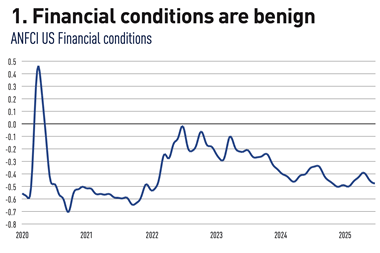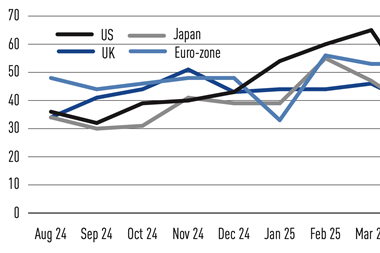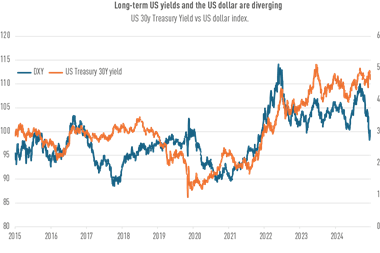The wind of change will sweep through Sri Lanka’s capital market if Nalaka Godahewa, Chairman at Sri Lanka’s Securities & Exchange Commission, had his way. With a fast-growing economy, sound banking system and competitive tax regime, the country is aiming to attract more foreign investment and position itself as a regional finance centre.
“We need a deeper, more liquid and sophisticated capital market,” says Godahewa. “We also need to have a clearer government policy framework concerning financial infrastructure and financial intermediation.”
Godahewa says the country is currently “making good progress” on improving its regulatory regime to mitigate risks, increase efficiency and enhance market transparency and liquidity. “This has been helped by the fact that our country’s banking system has not been exposed to toxic assets.”
During the civil war that spanned more than two decades, Sri Lanka’s capital market remained generally dull except during periods when there was a ceasefire. After the war, the market enlarged by 125% in 2009 and again by 96% in 2010.
“Our market does possess inherent strengths,” says Godahewa. “Increasing global participation is crucial.”
The potential of the market is highlighted by the interest of foreign funds such as the Wasatch Fund, BBH Mathews Asia Fund, Khazanah Nasional and the Aberdeen Group, which have invested in the large CAP stocks like JKH, COMB, SPEN and CTC. “Our long term goal is to grow the market that will reflect the country’s targeted GDP of $100bn by 2016.
“Along with the Central Bank, we have taken many regulatory initiatives to encourage foreign investment in to the capital market. We work closely with other international regulatory bodies to understand and adhere to the latest international standards and best practices.”
Godahewa admits most of the market development opportunities are hampered by the lack of a clearing house, or a CCP. “Our broker back office systems need upgrading. Trading platforms needs to be enhanced particularly to handle debt trading requirements. We expect to address these issues within the next year.”
Increasing market liquidity is a critical requirement to support growth, he adds. Of the 288 listed companies, some do not have a public float of even 25%.
“To counter this, we are working closely with CSE to encourage more private companies to be listed and have requested that the government lists some large state agencies,” he says. “We are also considering introducing a minimum public float requirement for listed companies.”
The SEC is also working to enhance its product portfolio. Currently, only equity and debt instruments are available and equity is almost 98% of the securities market. “In many other countries the bond market is much bigger than the equity market.”
Last year, the SEC introduced initiatives including tax concessions to promote the corporate debt market. In the first six months of the year there were 10 issues of listed debentures raising LKR24bn ($180m). “That’s more than the amount raised by all IPOs combined during the last three years. We expect this trend to continue but we need more products in the market such as derivatives.
The SEC is working with the central bank to set up a common CCP for both debt and equity, he says. “If everything goes according to plan, we will be able to introduce most of these instruments by the end of 2014 or early 2015.”
Godahewa adds the country is also taking steps to strengthen the regulatory framework. The new SEC Act amendments are pending Cabinet approval, then it will be handled to the legal draftsman and the new bill will hopefully be presented in Parliament within the next six months. “The new amendments will give more teeth to the SEC to take prompt enforcement actions by creating provisions for civil and administrative sanctions following global practices.
“The Act will also provide for the functioning of a demutualised exchange and a clearing corporation. Invariably, the amendments to the 25-year-old SEC Act will bring about a policy shift to strengthen enforcement activities, enhance market transparency, and increase market efficiency and liquidity, thus supporting the stability of the financial system.”
The Sri Lankan economy can expect several years of relatively high growth and improved living standards for its population if the government’s finances and policies are managed properly and infrastructure is in place to harness the highest potential from the private sector, Godahewa says. “We believe the government has already taken steps to uplift the economic output of small-to-medium scale enterprises and if support is extended to all private sector enterprises including large scale organisations, economic growth rates could be boosted.
“The economy should also build upon the increasing National Savings and broad base availability of multiple investment/savings products while viewing the capital markets as an avenue of investment/savings and high returns.”












